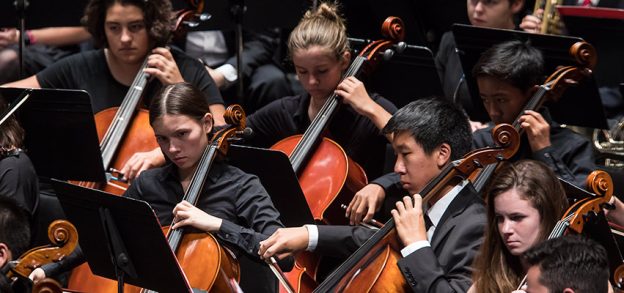Title: Cello Taboo and Rite of Passage
General Information about Item:
- Taboo folklore
- Language: English
- Country of Origin: United States
- Informant: Lorenz Chen
- Date Collected: 2-25-18
Informant Data:
- Lorenz Chen was born in Seattle, Washington, on January 14th, 2000. He grew up in Taiwan and moved back to the United States with his sister, brother, and mother when he was five. His father stayed in Taiwan to teach at a university. He is currently a high school student in Santa Barbara. He began playing the cello when he was eight years old, under the instruction of Ervin Klinkon. His sister and brother also play the cello. At the age of eleven, Lorenz was accepted into the Santa Barbara Youth Symphony. He became the principal cellist of the symphony when he was fourteen and has held the position since. In addition, he has headlined several concerts with solo performances.
Contextual Data:
- Cultural Context: In amateur symphonies, new cellists are accepted every year, and they usually stay for a minimum of three years. All cellists, new and experienced, audition annually and are assigned their seating based on their skills. So, the ranking is constantly obvious. The cellist nearest the conductor is most highly ranked and is called the principal cellist, or the first chair. Sharing a stand with the principal is the assistant principal, or the second chair. They’re collectively called “the first stand”. Behind them sits the second stand, behind whom sits the third stand and so on. The hierarchical structure creates competition, but it also ensures uniformity and consistency in how the cello section interprets and plays a piece of music. The primary goal of any section is to sound like a single instrument, so individuality is frowned upon.
- Social Context: I interviewed Lorenz over the phone, and he told me about a taboo within the cello section: showing off during rehearsal breaks. The taboo was not taught to him by his cello instructor or by the other cellists in his section. He said that he did not know that playing a solo piece was taboo until he stopped doing it. Lorenz said that during a practice one day, he simply stopped feeling the need to show off. It was at that moment that he felt truly incorporated into his section and accepted by the other cellists. As the principal now, Lorenz believes that this taboo works to remove individuality and to promote uniformity and cohesiveness in the section.
Item:
- It is considered taboo to play an individual piece during break. This is especially a problem for younger players, who are often placed at the back of the section and are eager to demonstrate their skills. They will often practice a concerto or an especially difficult etude.
- This taboo is also a part of a rite of passage. A new player slowly loses the need to demonstrate his or her skills. When a player finally dedicates rehearsal breaks to practicing the symphonic music, instead of an individual piece of music, he or she is incorporated fully into the cell section and is accepted by the other cellists. Erasing individuality is an essential element of this rite.
Associated file (a video, audio, or image file):
Lorenz Chen performing the Elgar Cello Concerto
Informant comment:
- “This is something every cellist, good or bad, does. I’m pretty sure when I join another symphony, I’m going to catch myself showing off during rehearsal breaks.”
Collector’s Comments:
- As Lorenz’s brother, I realized while speaking with him that, when we were playing in the same symphony, I never tried to stop him from showing off during breaks. When I first joined a symphony, I also had to learn by myself that it was taboo to play an individual piece of music during rehearsals.
Collector’s Name: Vincent Chen
Tags/Keywords:
- Taboo
- Rite of passage
- Cello
- Symphony
- New players


